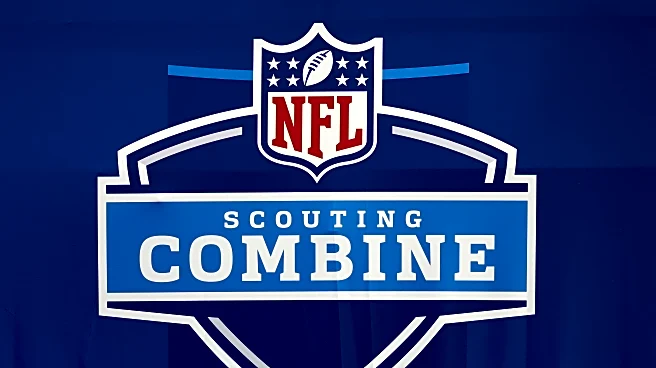What's Happening?
A Belgian Pro League soccer match between Standard de Liège and Royal Antwerp was abruptly stopped when referee Lothar D’hondt was struck by a cup thrown from the stands. The incident occurred in the 88th
minute with Standard leading 1-0. Following the disruption, the referee decided to send the players back to the locker rooms. The league announced that the remaining three minutes of the match will be completed on Monday, but without any fans present. Standard de Liège has identified the individual responsible for throwing the cup and plans to initiate stadium ban proceedings against him, as well as seek compensation. Under league rules, Standard will face a fine of 50,000 euros due to the incident. This rule, introduced in the 2023-24 season, mandates that any match halted by referees should resume behind closed doors to prevent spectators from influencing the game's outcome.
Why It's Important?
This incident underscores the ongoing challenges sports leagues face in maintaining order and safety during events. The decision to resume the match without fans highlights the league's commitment to ensuring fair play and the integrity of the game. The financial penalty imposed on Standard de Liège serves as a deterrent against future disruptions and emphasizes the responsibility of clubs to manage their spectators. This event may prompt other leagues to review their policies on crowd control and match disruptions, potentially leading to stricter regulations and security measures. The broader impact on the sports industry includes potential changes in how fan behavior is managed and the role of technology in monitoring and preventing such incidents.
What's Next?
The completion of the match on Monday will be closely watched to see if the absence of fans affects the players' performance or the final outcome. The league's handling of this incident may set a precedent for future cases, influencing how other sports organizations address similar disruptions. Clubs may also increase their focus on fan education and engagement to prevent such occurrences. Additionally, there could be discussions around enhancing stadium security and surveillance to quickly identify and address unruly behavior. The response from fans and stakeholders will be crucial in shaping future policies and practices in the sports industry.










